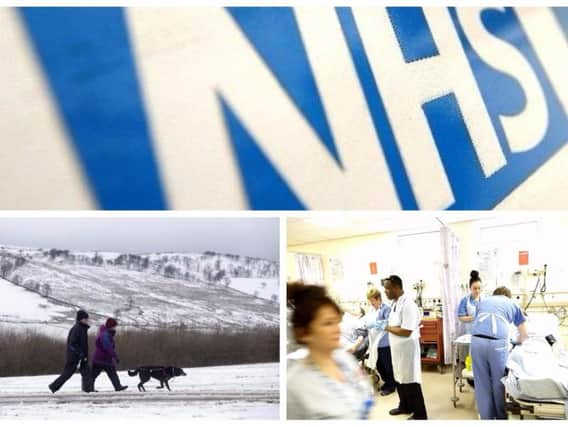'We must fund our GPs properly or risk another winter crisis'


In January this year, the Government scapegoated GPs and overstretched primary care services delivering up to 340m consultations a year, with individual GPs seeing up to 60 patients a day, rather than taking responsibility for a crisis of its own making and getting to grips with the chronic under-resourcing of NHS services.
Politicians have taken some steps towards addressing the crisis in general practice which almost brought the system clattering down last Christmas and have decided to work with general practitioners, rather than wrestle with us.
Advertisement
Hide AdAdvertisement
Hide AdIn the past two years, the BMA has secured maternity pay and guaranteed sickness pay for GPs and we’ve secured the full reimbursement of fees GPs are required to pay to be inspected, and funding towards the massive increase in indemnity insurance GPs require, which we still must pay ourselves while our secondary care colleagues are covered by the NHS hospital.
Making these important changes, just some of the many pitfalls that has imperilled GP practices at a time when nine in ten practices are telling the BMA their workloads are unmanageable, is a sign of progress but there is much more that needs to be done.
As GPs from across England gather for the national conference, I’m calling on politicians to address this crisis and expand investment in general practice. This is essential to truly meet the needs of our patients.
As welcome as the funding commitments made by NHS England have been, general practice needs a much more significant response.
Advertisement
Hide AdAdvertisement
Hide AdWe believe there is a need for at least 11 per cent of the total NHS budget to be invested in general practice in order to deliver the complex and specialised services patients expect and require.
Our latest analysis found current investment falls £3.7bn short of this target and investment in general practice is increasing at a slower rate than last year.
Excluding a reimbursement for drugs, general practice currently receives 7.9 per cent of the budget, much less than a decade ago when that was 9.6 per cent. This may not seem like a big difference but the reality is that it is having a major impact.
This is about much more than balancing spreadsheets; if doctors can’t effectively run their premises, it’s ultimately patients who suffer.
Advertisement
Hide AdAdvertisement
Hide AdEarlier this month, a surgery in Folkestone with 4,700 patients was forced to close its door as a result of severe funding and recruitment problems.
The deprived seaside town had already seen seven of its eight practices apply to close their patient lists because overwhelming demand left them feeling it would be unsafe to accept new registrations.
It’s not overdramatic to say there are countless practices, similar to this surgery in Kent, close to switching off the lights for the last time.
GPs should not be left scrambling to deliver complex and specialised services for so little. We are the first port of call for patients who deserve the holistic approach to health GPs offer, but we need the necessary resources if this is to continue.
Advertisement
Hide AdAdvertisement
Hide AdSo where do we go from here? Health Secretary Jeremy Hunt has recently restated his commitment to securing an additional 5,000 GPs to sort out staffing issues despite huge challenges which is something we support.
Where Jeremy Hunt and the Treasury must go further is by recognising the NHS budget isn’t sufficient for the task at hand, and the decision to invest more in the NHS, the most popular public service, can and should be made.
It must be a priority to give the vital resources needed not just by general practice, but also to our community services, mental health services, hospital services and social services, to which anyone working in those services can attest, are experiencing gigantic and increasing pressures.
Without doing this we’ll face an even more difficult winter this year than we did 12 months ago.
Dr Richard Vautrey is a family doctor in Leeds. He is also the British Medical Association’s GP committee chair.